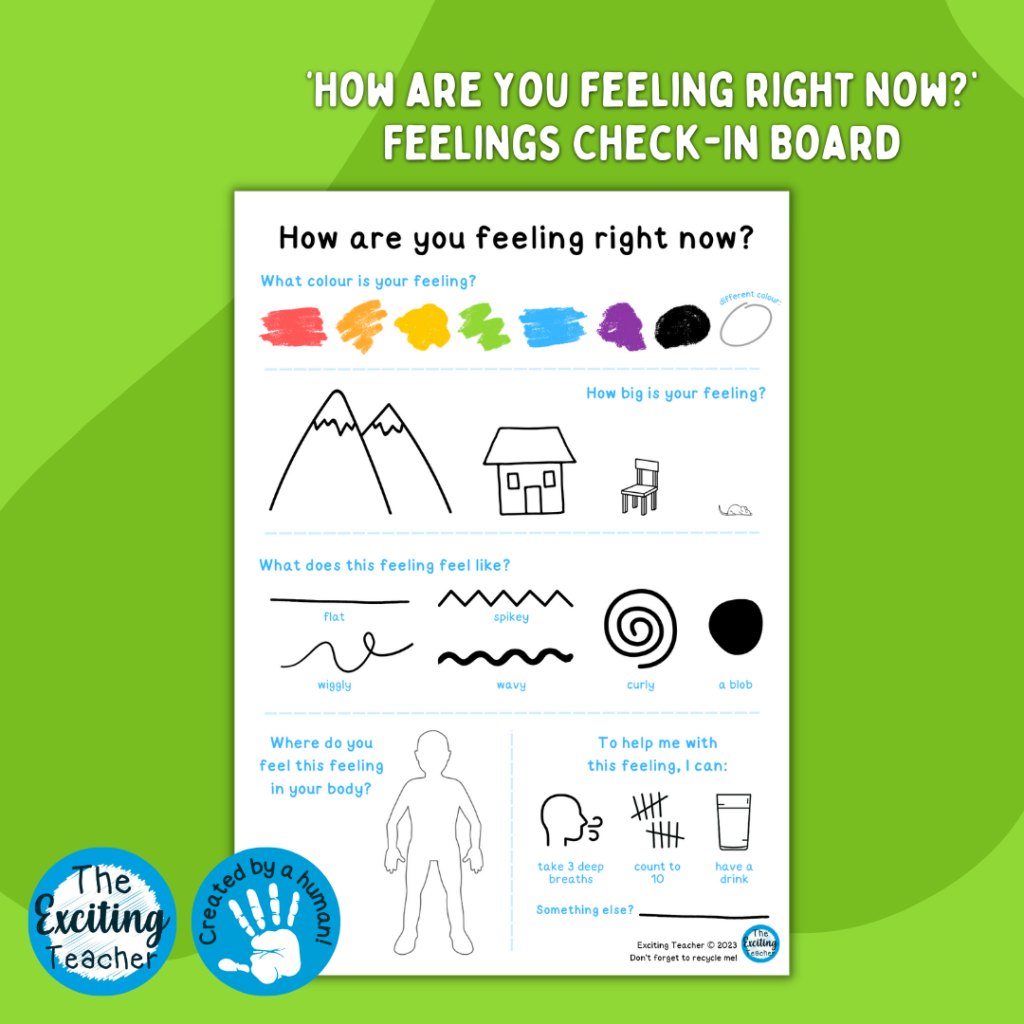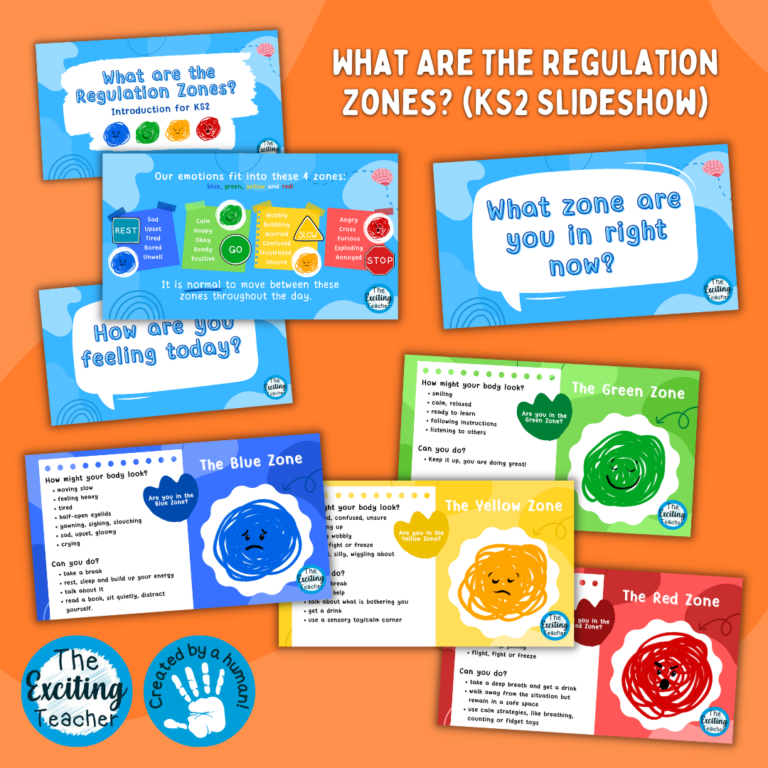'How are you feeling right now?' Feelings Check-In Board

‘How are you feeling right now?’ is a feelings check-in board created to help children explore their feelings.
This is a feelings check-in board that has been specifically designed to empower young people, giving them the opportunity to share their current emotional state in a safe and reflective way.
Children can share how big their feeling is, what colour it is, where in their body they can feel it, the feeling of it, and identify what can help.
All in all, the ‘How are you feeling right now?’ board is a fantastic way to help children become more aware of their emotions, and enables them to develop a healthy dialogue about their feelings. It can prove to be incredibly beneficial for emotional management and personal growth.
How can this resource be used?
- To support children 1:1 in therapy sessions, such as CBT sessions.
- To normalise talking about BIG feelings and exploring coping strategies to support with big feelings.
Relevant Curriculum Links
England PSHE Statutory Curriculum Strands:
KS1:
- H11. about different feelings that humans can experience.
- H12. how to recognise and name different feelings.
- H13. how feelings can affect people’s bodies and how they behave.
- H15. to recognise that not everyone feels the same at the same time, or feels the same about the same things.
- H18. different things they can do to manage big feelings, to help calm themselves down and/or change their mood when they don’t feel good.
- H19. to recognise when they need help with feelings; that it is important to ask for help with feelings; and how to ask for it.
KS2:
- H18. about everyday things that affect feelings and the importance of expressing feelings.
- H20. strategies to respond to feelings, including intense or conflicting feelings; how to manage and respond to feelings appropriately and proportionately in different situations.
- H21. to recognise warning signs about mental health and wellbeing and how to seek support for themselves and others.
- H22. to recognise that anyone can experience mental ill health; that most difficulties can be resolved with help and support; and that it is important to discuss feelings with a trusted adult.
Scottish Health and Wellbeing Curriculum Outcome(s):
- I am aware of and able to express my feelings and am developing the ability to talk about them. HWB 0-01a / HWB 1-01a / HWB 2-01a / HWB 3-01a / HWB 4-01a.
- I know that we all experience a variety of thoughts and emotions that affect how we feel and behave and I am learning ways of managing them. HWB 0-02a / HWB 1-02a / HWB 2-02a / HWB 3-02a / HWB 4-02a.
- I understand that there are people I can talk to and that there are a number of ways in which I can gain access to practical and emotional support to help me and others in a range of circumstances. HWB 0-03a / HWB 1-03a / HWB 2-03a / HWB 3-03a / HWB 4-03a.
- I understand that my feelings and reactions can change depending upon what is happening within and around me. This helps me to understand my own behaviour and the way others behave. HWB 0-04a / HWB 1-04a / HWB 2-04a / HWB 3-04a / HWB 4-04a.
- I understand the importance of mental wellbeing and that this can be fostered and strengthened through personal coping skills and positive relationships. I know that it is not always possible to enjoy good mental health and that if this happens there is support available. HWB 0-06a / HWB 1-06a / HWB 2-06a / HWB 3-06a / HWB 4-06a.



